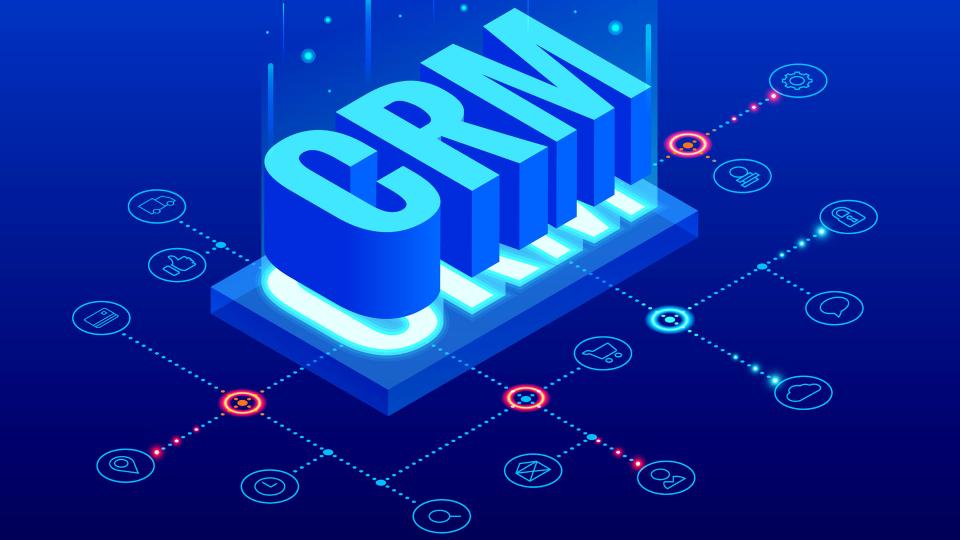On the occasion of the popularization of CRM solutions, it was common to defend itself as the main differential that a company could have in terms of success in Sales.
A lot of time has passed and there is even those who support the same justifications for its adoption in companies.
If you are one of the many who still have more questions than answers and don’t know if it’s really good and if your company needs a CRM , our job here is to help you decide and when is the time to adopt one.
What is CRM?
CRM is the acronym for Customer Relationship Management and which, in practical terms, is based on a system, that is, a software that aims to help in “Customer Relationship Management” and which is also the translation of the term into English.
As is customary here on the blog, this answer is not exactly good, especially for those who know very little and definitions like this do not lend themselves to answering in a broad and enlightening way to question.
The popularization of CRM occurred in the 1990s as a result of digital transformation, how easy and necessary support systems were and the importance of acting based on information.
In practical terms, it is an administration tool that can be installed on a company’s local server, or in the cloud (cloud computing) or even directly on the computers – or other devices – of the people who use it. This will depend on the characteristics of the tool eventually chosen.
That is, when viewed as software, its use may vary according to the choice, as it is with the most diverse programs for the most various purposes, being possible, for example, to access through a browser directly in the cloud and not even need to install anything.
Regardless of the peculiarities of each solution on the market, what a CRM system does, is to store data and through different resources, such as graphs, estimates and projections, reports and a multitude of possibilities, so that those who need the information can make better decisions and relate to their customers based on the accuracy and variety of information obtained.
Where and how to use CRM?
Although the first CRM applications were developed as a support tool for the commercial area, with over time, it was seen that the concept was applicable el in other areas of organizations and thus, the systems were adjusted for use in customer service, in traditional and Digital Marketing, in industry and even for specific areas, such as in the health area, for example.
This broader and more comprehensive view came from the simple fact that there are relationships with customers in different spheres besides the commercial one and that depending on the segment, as in the example of health, which, unlike fashion, requires a specific approach and that it involves other aspects.
All people need to get dressed, as they need access to a health plan, but the characteristics that are observed, the value that is given, change for both products.
You buy different clothes according to fashion trends, seasons, age group, gender, style and so on. And these purchases are recurring.
When we talk about health, reliability, accredited network, coverage, shortages, are some of the aspects analyzed.
Therefore, sometimes a tool is not suitable for use in any industry.
Some offer a good level of customization that allows adjustments to suit companies operating in different markets. Others are more focused and focused on certain realities.
Whatever the case, the objective is always to have information for a close relationship and an extremely personalized service, which is only possible, having varied and exact information from its customers.
What are the benefits of CRM?
A good CRM, implemented properly and in companies prepared to use it it, according to all its possibilities, can provide numerous benefits:
- Relationship – as the name suggests, it is a tool which serves as a support to amplify the relationship and, therefore, facilitates and produces better results when having Relationship Marketing actions;
- Sales – improves sales, both in the sense of making better sales, and in greater quantity;
- Satisfaction – when we talk about making better sales, it is selling exactly according to the needs and desires of the customers. customers and as a result, there are better satisfaction rates, contributing to a better Net Promoter Score (NPS);
- Decision – good CRM systems are also good generators of strategic information, which for this reason, contribute to decision making and to the elaboration of more grounded strategic plans;
- Indicators – they are also good thermometers of how relationships are going, as they provide several indicators that strengthen several aspects, such as monitoring the product’s useful life cycle, after sales, complaints and solutions, standardization, etc;
- Service – by providing more detailed, varied, specific and , above all, reliable, it is possible to provide a more personalized, humanized and differentiated service;
- Administration – important instrument of administration, helping in the organization, in the adequacy with procedures operational standards and even in time management.
When to implement a CRM?
Those who just had some idea about or just heard about it, at this point must be wanting to enjoy the many benefits that an effective implementation can produce.
However, we need to be honest and say that it won’t always be a good deal.
But what do you mean?
If you paid attention to everything we’ve said so far, one of the first relevant pieces of information is that it is a system and, therefore, a tool.
The same tool, whether physical (eg knife) or digital (eg personal organizer), can produce different results depending on who uses them.
The different results are the result of experience, willingness to use, correctness when doing so, pretensions and a series of other factors.
Let’s take Microsoft Outlook as an example, which is a complete organizer and if well used and appropriate using all its potential, it manages to serve as a great tool for personal organization and contributes to time management. But for a lay user who is not willing to learn – and use – everything that the tool offers, it is nothing more than an expensive and complicated email client.
The implementation of a solution of Customer Relationship Management, which aims to be effective and thus produce the results that are possible, goes through a previous process of adjusting any incompatibilities.
If you still don’t understand, think about one of the most rooted in the commercial area, which is the belief that the customer belongs to the seller and not to the company.
A seller who works according to this paradigm will have a natural resistance to feeding the system with all the data from the his clients, because he thinks that information is his patrimony and it is what makes him “special” to each client.
And that’s not all. If you expect that a simple software will bring you closer to customers, you probably don’t understand that Relationship Marketing is more than information about the consumer market.
In other words, before implementing this – or any other – tool, the company must have the philosophy and culture behind the desired results in force.
Again, CRM will work well as a relationship tool, if the company already has instilled in the minds of all people who provide care, the importance of a close, human, personalized relationship that aims at satisfaction above all.
So, before going to the market in search of a tool, it is necessary to ensure that the company applies training, qualification and recycling to employees aiming at the customer, if there are measurements of the level of customer satisfaction and how this translates into improvements, if there are continuous improvement processes, in short, it is essential to make sure that the company actually works customer-oriented and all that that implies.
If not, chances are it is just an expensive tool that produces few results.
Conclusion
CRM is a great tool to manage the relationship with your customers and have great results, as long as the company is prepared for its use.









